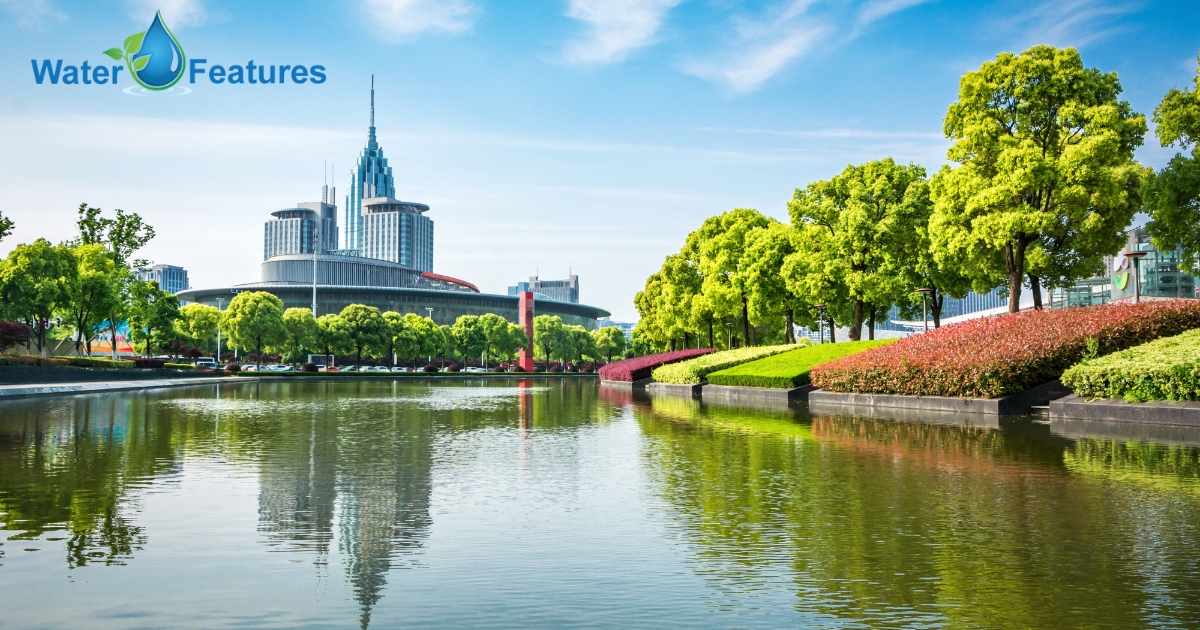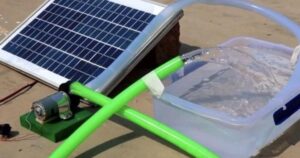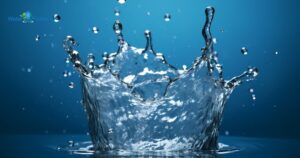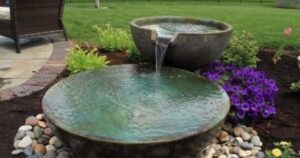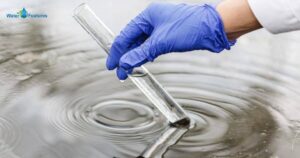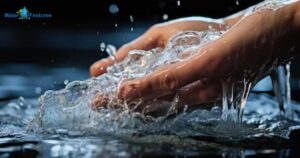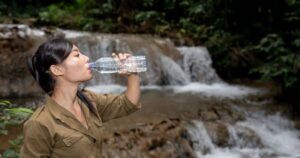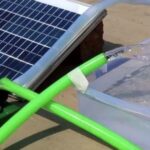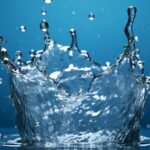Tap water is an essential part of our daily lives, but not all tap water is created equal. In some cities, you can fill your glass straight from the faucet without a second thought. In others, the quality of tap water might be questionable, leading many to rely on bottled water.
Seattle, nestled in the Pacific Northwest, boasts a reputation for pristine natural beauty. But does this extend to the water that flows from its taps?
Seattle’s nickname, the “Emerald City,” conjures images of lush forests, clean air, and crystal-clear waters. It’s a city that values sustainability and environmental consciousness. Can You Drink Tap Water In Seattle? Seattle’s tap water is not only safe to drink but also known for its high quality. The city’s commitment to environmental responsibility extends to its water supply, making it a reliable and eco-friendly choice for residents and visitors alike.
The quality of tap water can vary from place to place, depending on factors like the source, treatment, and local infrastructure. Seattle’s tap water, sourced primarily from protected mountain watersheds and managed by the city’s Public Utilities, is known for its high standards.
Where Does Seattle’s Water Supply Come From?
Seattle’s water supply primarily originates from the pristine Cedar River and Tolt River watersheds, both located in the beautiful Cascade Mountains. These sources are carefully selected to ensure the highest water quality. The city has long recognized the importance of preserving these natural water sources, and the protected watersheds serve as the heart of Seattle’s water supply system.
Once the water is collected from these clean and unspoiled environments, it embarks on a journey through a network of pipelines and treatment facilities. Seattle’s Public Utilities Department employs advanced technology to treat and purify the water, using methods like ozone disinfection, ultraviolet light, and chlorine.
These rigorous treatment processes remove impurities and harmful microorganisms, ensuring that the water reaching your tap is safe and pure for drinking. The combination of untouched mountain watersheds and modern treatment methods makes Seattle’s tap water one of the finest in the nation, consistently meeting or exceeding stringent water quality standards.
Is It Safe to Drink Tap Water in Seattle?
When it comes to tap water safety, Seattle ranks among the top cities in the United States. The city’s tap water undergoes rigorous testing and treatment to ensure its purity and safety. Seattle draws its tap water from the protected Cedar River and Tolt River watersheds, minimizing exposure to contaminants.
This pristine source water, coupled with advanced treatment methods like ozone disinfection, ultraviolet light, and chlorine, ensures that the water is free from harmful bacteria and viruses, making it safe to drink.
Many residents and visitors find it crisp, refreshing, and free from any unpleasant aftertaste. The city is committed to environmental sustainability, safeguarding the watersheds that provide its water supply.
So, when it comes to quenching your thirst or cooking a delicious meal in Seattle, you can trust the tap water without worry, knowing it meets stringent quality standards and is both safe and enjoyable to drink.
How Is Seattle’s Water Quality?
Seattle’s water quality is truly top-notch. The city sources its tap water from the pristine Cedar River and Tolt River watersheds, which are carefully protected to minimize contamination. This means that the water starts off clean and pure. Seattle Public Utilities takes additional steps to ensure it stays that way. They employ cutting-edge water treatment technologies like ozone disinfection, ultraviolet light, and chlorine to eliminate any lingering bacteria, viruses, and impurities.
This rigorous treatment process not only makes the water safe but also enhances its taste, even though there have been some quality issues with Vegas tap water. As a result, many people find Seattle’s tap water to be deliciously crisp and refreshing, often rated among the best-tasting tap waters in the nation. You can trust that when you turn on the tap in Seattle, you’re getting water of the highest quality.
Seattle’s commitment to water quality doesn’t stop at treatment. The city closely follows regulations set by the Environmental Protection Agency (EPA) and the Washington State Department of Health. Rigorous testing ensures that water quality consistently meets or surpasses federal and state standards.
This dedication to transparency and safety guarantees that the water you’re drinking is held to the most stringent quality control. Seattle is also deeply committed to sustainability. It employs eco-friendly practices to protect its watersheds and reduce its environmental impact. This sustainable approach ensures that water sources remain healthy, securing access to clean and safe tap water for future generations.
Does Seattle Water Need to Be Filtered?
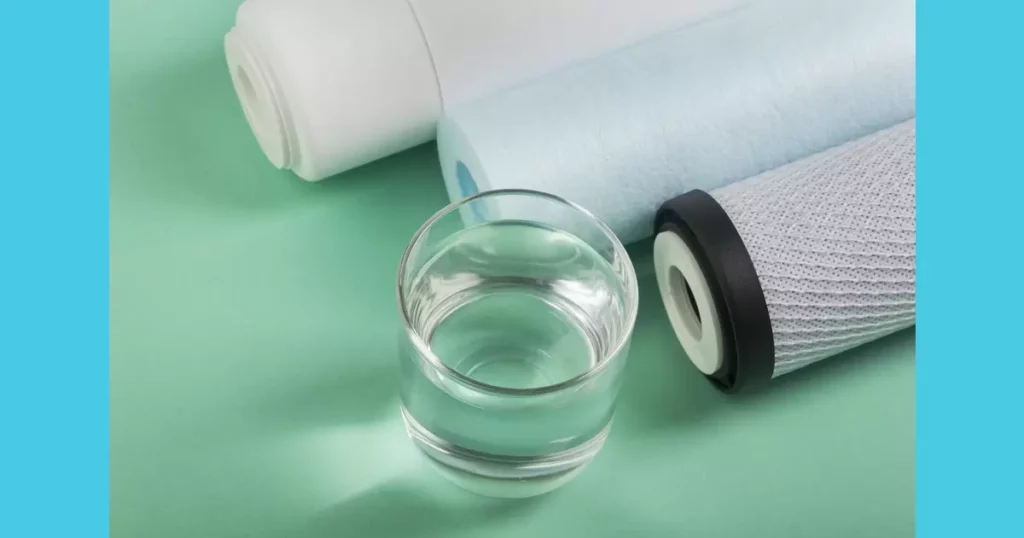
Here are ten points about whether Seattle’s water needs to be filtered
High-Quality Source
Seattle’s tap water primarily originates from protected mountain watersheds like the Cedar River and Tolt River. These pristine sources provide exceptionally clean water, which is a major reason why filtering may not be necessary. The natural quality of the water is maintained right from the start.
Rigorous Treatment Process
Before reaching your tap, Seattle’s water undergoes extensive treatment processes, including ozone disinfection, ultraviolet light, and chlorine treatment. These steps remove impurities and harmful microorganisms, ensuring that the water is safe to drink. As a result, the water is already purified to a high standard, making filtration for safety concerns unnecessary.
Regular Testing and Monitoring
Seattle’s tap water quality is continuously monitored by local authorities and regulatory agencies. The city conducts extensive testing to ensure that it complies with federal and state water quality standards. This ongoing commitment to safety provides added assurance that the water you receive at home is safe to drink without additional filtration.
Excellent Taste and Clarity
Seattle’s tap water is known for its excellent taste and clarity, often considered among the best-tasting tap waters in the country. Due to the natural purity of the source water and the robust treatment process, the water doesn’t have any unpleasant aftertaste. Filtering may not only be unnecessary for safety but also for improving the taste of the water.
Low Risk of Contaminants
Seattle’s protected watersheds and effective treatment processes significantly reduce the risk of contaminants such as bacteria, viruses, and chemicals in the tap water. This low risk makes filtering for health concerns less of a priority.
Environmental Sustainability
By not using additional filtration systems, you contribute to the city’s environmental sustainability efforts. Filtering water often requires energy and resources, which may not align with Seattle’s eco-friendly values.
Cost-Effective
Using Seattle’s tap water without additional filtration is cost-effective. You can save money by not investing in filtration systems, replacement filters, and maintenance.
Convenience
Enjoying Seattle’s tap water directly from the faucet is convenient. You don’t have to worry about constantly replacing or maintaining filtration systems, which can be cumbersome.
Consistent Quality
The water quality in Seattle remains consistent due to rigorous treatment and monitoring. Filtering at home may result in variations in water quality and taste, which can be avoided by drinking directly from the tap.
Water Tastes Great
Seattle’s tap water is known for its refreshing and clean taste. Filtering could potentially alter the taste and strip away some of the minerals that contribute to its unique flavor. So, filtering may not be necessary if you appreciate the natural taste of the water.
Seattle’s tap water, sourced from pristine locations and thoroughly treated, typically does not require additional filtering for safety or taste. Drinking it straight from the tap is convenient, cost-effective, and environmentally friendly, aligning with the city’s commitment to clean, sustainable water sources.
Is Seattle Water Hard or Soft?
The water in Seattle is generally considered soft. This means it contains fewer dissolved minerals, particularly calcium and magnesium, which are responsible for making water hard. In Seattle, the water primarily comes from protected watersheds in the Cascade Mountains. This source water is naturally soft, contributing to the softness of the tap water in the city.
So, when you shower, do your laundry, or wash your dishes, you’ll likely notice that the soap lathers up easily, and you won’t see much scale buildup on your appliances or fixtures. This soft water can be gentler on your skin and hair, and it also helps to prolong the life of your household appliances that use water.
What Contaminants Are in Seattle Water?
In Seattle’s tap water, there’s a strong emphasis on cleanliness and safety. This means regularly testing for a variety of contaminants to ensure that the water remains pure and healthy for consumption. Some of the key points about contaminants in Seattle water include.
Microbes
Seattle’s water undergoes thorough treatment to eliminate harmful bacteria, viruses, and parasites, making it safe for consumption.
Chlorine
Small amounts of chlorine are used to disinfect the water, ensuring that any remaining microbes are neutralized before reaching your tap.
Lead
To prevent lead contamination, Seattle adds a corrosion inhibitor to the water to safeguard against lead leaching from plumbing pipes.
Metals
The water is regularly tested for metals like copper and iron. Seattle ensures that these metals remain within safe levels, so they don’t affect the water’s quality or taste.
Chemical Compounds
Continuous monitoring keeps an eye on various chemical compounds, such as disinfection byproducts, to ensure they are well below regulatory limits and safe for consumption.
Nitrates
Seattle’s water supply also gets tested for nitrates, which can come from agricultural runoff. Keeping these levels low helps protect water quality.
Overall, Seattle takes proactive measures to ensure that contaminants are minimized, providing you with water that’s both safe and refreshing to drink.
Why Seattle’s Tap Water Is So Good
Seattle’s tap water has earned its stellar reputation for several compelling reasons
Pristine Sources
Seattle draws its tap water from the Cedar River and Tolt River watersheds, protected natural havens that minimize exposure to contaminants. This means that from the very source, the water is exceptionally pure, reducing the need for extensive treatment.
Top-Notch Treatment
Seattle Public Utilities employs cutting-edge water treatment technologies, including ozone disinfection, ultraviolet light, and chlorine, to ensure the water is as clean and safe as possible. These advanced methods effectively eliminate harmful microorganisms and impurities.
Regulated Quality
The Environmental Protection Agency (EPA) and the Washington State Department of Health strictly regulate Seattle’s tap water. Regular testing and stringent adherence to federal and state standards guarantee that the water meets or exceeds the highest quality requirements.
Benefits of Seattle’s Tap Water
- Outstanding Taste
The combination of naturally pure source water and effective treatment processes ensures that Seattle’s tap water tastes crisp, clean, and refreshing.
- Safety Assurance
Rigorous monitoring and testing by authorities make Seattle’s tap water among the safest options, free from common contaminants.
- Eco-Friendly
Seattle’s commitment to environmental sustainability not only guarantees clean water today but also ensures the protection of water sources for future generations.
- Cost-Effective:
Choosing tap water over bottled options helps save money while reducing plastic waste and environmental impact.
With these benefits, Seattle’s tap water isn’t just good it’s a model of high-quality, sustainable drinking water.
What Makes Seattle Drinking Water Different?
Seattle’s drinking water stands out for several key reasons
Pristine Mountain Sources
The source of Seattle’s tap water sets it apart. The city draws its water from protected mountain watersheds, like the Cedar River and Tolt River. These sources are nestled in the pristine forests of the Pacific Northwest, minimizing exposure to pollutants and contaminants. It’s like taking a sip of nature’s purest offerings right from your faucet.
Advanced Treatment Methods
Seattle’s commitment to water quality is evident in its advanced treatment processes. The water undergoes ozone disinfection, ultraviolet light treatment, and chlorine disinfection. These cutting-edge methods not only eliminate harmful microorganisms but also remove impurities, ensuring that the water you drink is exceptionally clean and safe for consumption. Seattle’s water treatment is a benchmark for many other cities.
| Treatment Method | Description |
| Ozone Disinfection | Ozone is a powerful oxidizing agent that is used to disinfect the water. It effectively destroys bacteria, viruses, and other microorganisms. Ozone treatment is more efficient and environmentally friendly than traditional chlorine disinfection. |
| Ultraviolet (UV) Light Treatment | UV light is used to inactivate harmful microorganisms by disrupting their DNA, rendering them harmless. This method doesn’t introduce chemicals into the water, making it an environmentally friendly and effective disinfection technique. |
| Chlorine Disinfection | After ozone and UV treatment, a low, residual level of chlorine is added to the water. Chlorine further ensures that the water remains free from any remaining bacteria and provides continued disinfection as water travels through the distribution system. |
| Particle and Impurity Removal | In addition to disinfection, Seattle’s water treatment processes include filtration to remove particles and impurities. This ensures the water is clear, crisp, and free from any contaminants that might affect taste or quality. |
| Monitoring and Quality Control | Seattle’s water quality is continuously monitored at every step of the treatment process. This rigorous testing ensures that the water consistently meets or exceeds federal and state standards for safety and quality. |
Drinking water in public places and restaurants
When you’re out and about in public places, staying hydrated is essential. Many cities provide access to clean and safe drinking water in various public locations, such as parks, transportation hubs, and public squares. You’ll often find water fountains or dispensers that are regularly maintained to ensure the water’s quality.
These are not only convenient but also environmentally friendly, as they reduce the need for single-use plastic bottles. So, whether you’re exploring a new city or simply going for a walk in your local park, keep an eye out for these convenient water sources to quench your thirst.
Restaurants are excellent places to enjoy a meal, and they also provide a steady supply of drinking water. When you dine out, you can typically request a glass of tap water without any additional charge. The water served in restaurants is subject to strict health and safety regulations, ensuring it’s safe to drink.
In some establishments, you might even receive a glass of water with a slice of lemon or a sprig of mint for a refreshing twist. So, whether you’re savoring a special meal or grabbing a quick bite, feel free to ask for a glass of water to accompany your dining experience. It’s a simple and cost-effective way to stay hydrated while enjoying your favorite dishes.
FAQ’S
Is it safe to drink sink water in Washington?
It is safe to drink tap water in Washington. The state has strict regulations ensuring the quality of its drinking water
Is Seattle tap water filtered?
Seattle tap water is filtered using advanced technologies like ozone disinfection and ultraviolet light to ensure its purity and safety.
Is it OK to drink tap water in the USA?
It’s generally safe to drink tap water in the USA. Water quality is closely regulated, meeting high standards for safety and taste.
Can I drink Seattle tap water?
It is generally safe to drink tap water in the USA. Water quality standards and regulations ensure it meets safety criteria.
Conclusion
In the heart of the “Emerald City,” you can indeed drink tap water without hesitation. Seattle’s tap water not only meets stringent quality standards but also benefits from pristine natural sources and state-of-the-art treatment processes. Its refreshing taste and commitment to environmental sustainability make it a shining example of high-quality tap water.
Seattle’s tap water embodies the city’s dedication to the environment, health, and well-being, ensuring that you can savor every sip with confidence. In Seattle, it’s clear that tap water is a refreshing choice you can trust. So, go ahead and raise a glass to the clean, safe, and delicious tap water that flows in the heart of the Pacific Northwest Seattle!
